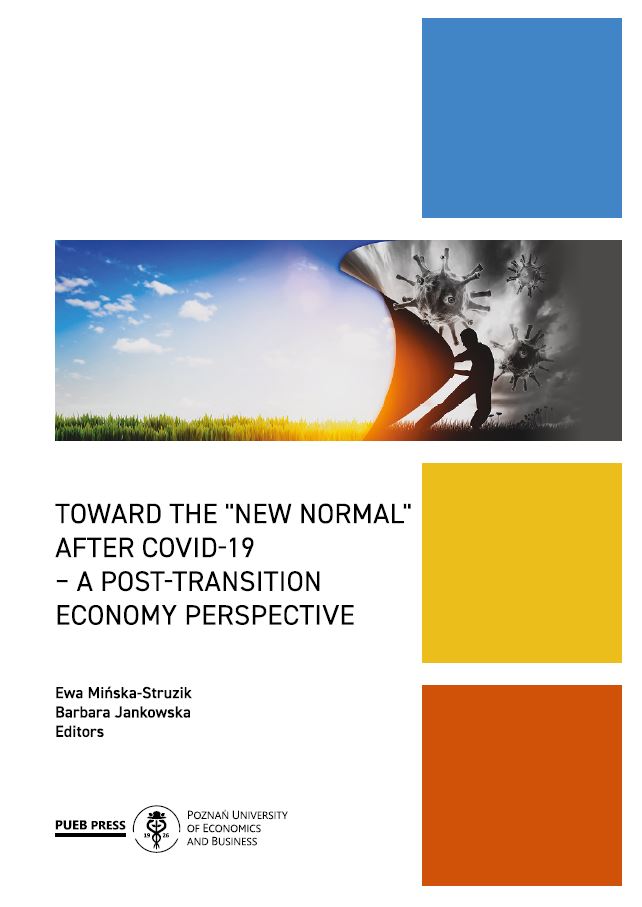The European Union’s Common Commercial Policy and the Covid-19 pandemic: Reactions and challenges
The European Union’s Common Commercial Policy and the Covid-19 pandemic: Reactions and challenges
Author(s): Grzegorz Mazur
Subject(s): Politics, Economy, Supranational / Global Economy, Economic policy, International relations/trade, EU-Approach / EU-Accession / EU-Development
Published by: Wydawnictwo Uniwersytetu Ekonomicznego w Poznaniu
Keywords: EU – European Union;Common Commercial Policy;trade policy;Covid-19;pandemic;
Summary/Abstract: Purpose: The general aim of the chapter is to investigate trade measures implemented in the EU in the aftermath of the Covid-19 outbreak and define general potential effects of the current economic turbulences on the future shape of the Common Commercial Policy (CCP). Design/methodology/approach: The chapter is based on literature/EU official documents studies and statistical analysis of the EU’s merchandise trade. It has been structured into three parts. The first one presents recent trends in the EU’s external merchandise trade caused by the pandemic’s economic repercussions. This is followed by ashort analysis of temporary trade restrictions implemented by many EU Members States and the EU in response to supply shocks. The third part refers to the potential impact of current trade and economic processes on the post-pandemic trade strategy of the EU. Findings: Although the future shape of global trade system and the pandemic’s impact on the nature of the CCP are subjects of high uncertainty, the conducted analysis offers some general conclusions. The implemented trade restrictions should be limited and made temporary as future trade openness is essential for economic recovery. There is also ageneral consensus that the EU’s CCP should ensure the necessary resilience to future trade distortions. However, this should not be connected with protectionism and narrowly understood self-sufficiency. Among important factors that reinforce the resilience, we should mention the solutions delivered by new technologies (e.g. automation, AI, three-dimensional printing), fair competition, higher transparency of trade policies, international standards, certification schemes, and stronger multilateral cooperation, including World Trade Organization’s reforms. The renewed trade strategy will also be accompanied with global trade and economic tendencies such as the reshoring and regionalization of trade. Originality and value: The chapter is addressed to students, scholars, and policymakers by contributing to the current debate on the post-pandemic shape of global trade relations and the future nature of the EU’s Common Commercial Policy.
Book: Toward the „new normal” after COVID-19 – a post-transition economy perspective
- Page Range: 44-53
- Page Count: 10
- Publication Year: 2021
- Language: English
- Content File-PDF

